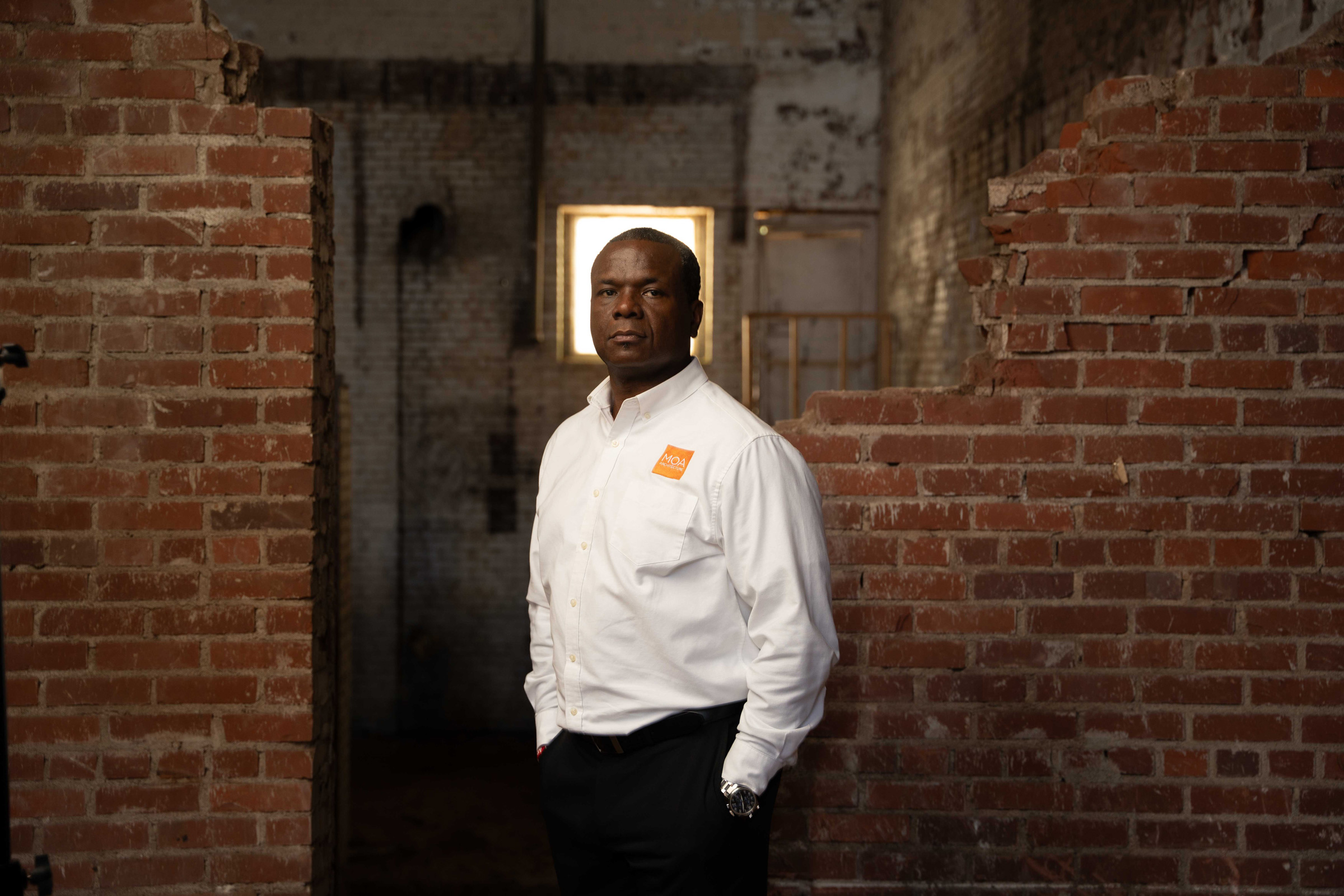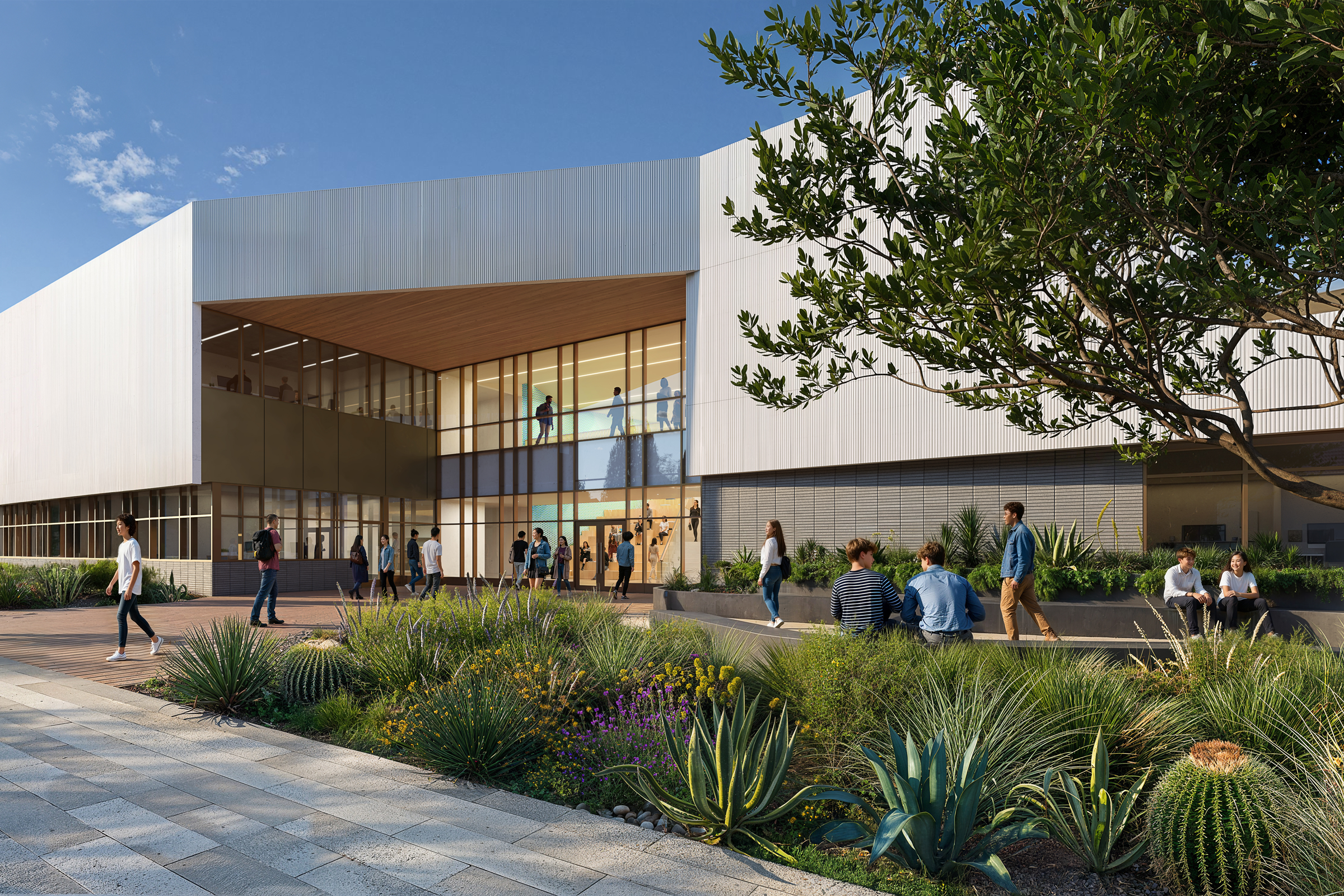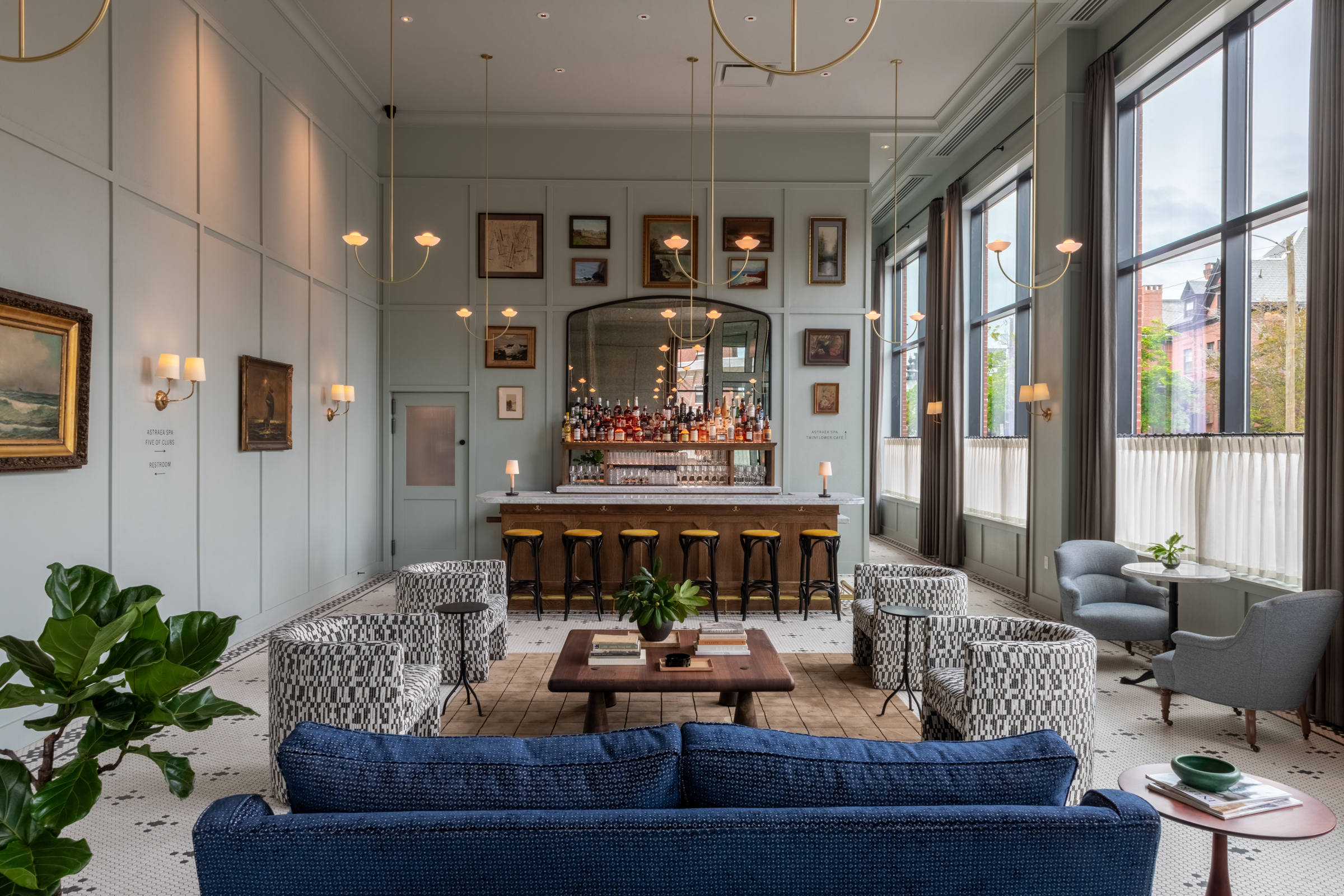Story at a glance:
- Michael Allen is designing for equity and healing with work like the Echo Project.
- Allen founded MOA Architecture in 2019 after years of working with other firms.
- The firm is part of a team working to transform a former Ku Klux Klan and neo-Nazi headquarters into a center for racial healing.
Michael Allen always liked to draw. Growing up he loved to sketch and tinker and learn new things. He went to the library and read books about architecture for fun. “I was always a learner. I still am,” he says.
Allen went on to study architecture at Clemson University, where he also played football, before deciding to test his true passion. He worked for a few firms, soaking up real-world knowledge and learning what he liked and didn’t like about the industry before realizing it was time to make a name for himself. “I kept having this itch to do it on my own,” he says.
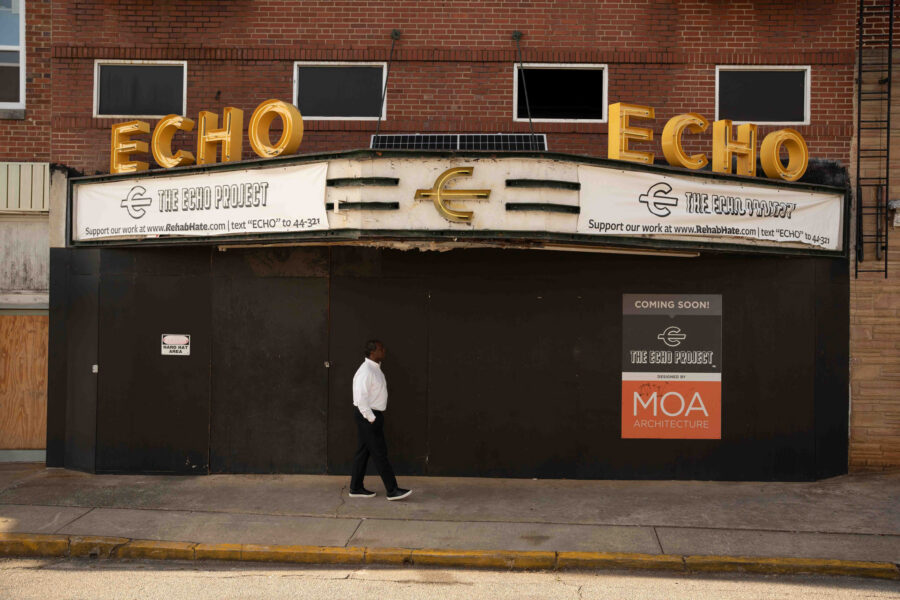
Michael Allen assesses the site of the Echo Project in Laurens, South Carolina. Photo by William Crooks
In 2019 he started MOA Architecture, and in 2021 he received the Social Justice Award from the South Carolina Chapter of AIA. Now 47, the architect is partly immersed in working on the Echo Theater in Laurens, South Carolina (population less than 10,000). It’s such an important project that, at first, he and the Greenville-based firm volunteered design services to help get things moving. The Echo Project aims to build a museum and center for racial healing at the site of a former white supremacist headquarters. The building was first a segregated movie theater and then a place called the Redneck Shop, a known gathering place for the Ku Klux Klan and other hate groups until as recently as 2012.
Allen remembers when he first talked to the leaders of the Echo Project—people like Reverend David E. Kennedy, who grew up in Laurens in the midst of the Civil Rights Movement. Kennedy currently serves as president of the project. “I sat and talked with Reverend Kennedy, his wife, and the board members to hear the stories surrounding the theater, and it really impacted me emotionally,” he says. “As an architect—one of the few Black registered architects and one of the only Black-owned firms in the state of South Carolina—I thought it would be a strong representation to come in and be the lead architect of record on a project like this. We want to transform a building from a symbol of hate into something positive for the community and the state.”
The history of this theater is an example of how hate for another race of people can change lives forever.
Allen was born and raised in Conway, South Carolina, and his alma mater Clemson is just over an hour away from the site, though he had no idea it was there—or its history. “This is the state I was born and raised in, and I have so much passion for this. We’re not finished with some of these stories. Race in America is an ongoing issue. The history of this theater is an example of how hate for another race of people can change lives forever. This hate continues today in many communities. This type of project is a step forward in helping to correct misdirected hate,” he says. “Also the Reverend and board have some huge ideas about teaching restoration and teaching overcoming pain and understanding. There is so much that’s going to come from this project. I have to help this vision come to life.”
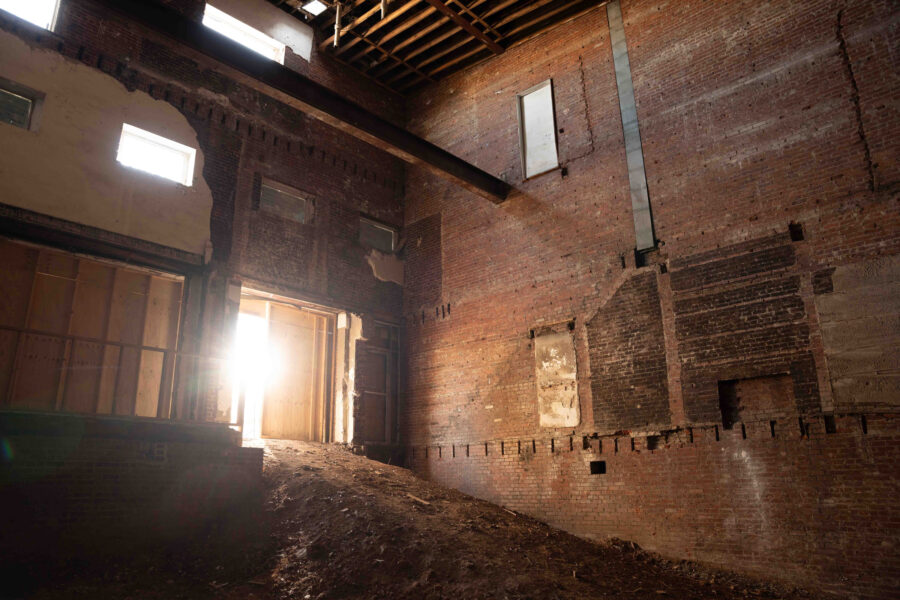
Much work remains inside the former theater-turned-meeting place for hate groups. Community groups have plans for the old building to become a place of healing. Photo by William Crooks
The project so far has included a lot of interior demolition and removing racist paraphernalia, but a 20-foot swastika has proven challenging to cover up as it bled through the paint. The design team is considering incorporating it as an educational element. The symbol of hate was painted inside the building when the KKK moved in and began having active meetings for hate groups.
“The idea is to use that as a portion of the overall design. Although painful to see, it’s very symbolic. It’s where the screen for the theater was,” Allen says. “Blacks went up this skinny, dark stairwell and a separate door to get to the balcony to watch a movie. You come in and experience the racial divide of the theater. We want people to emotionally connect with the community and the history of the theater.”
MASS Design Group is also expected to work alongside MOA to design the project’s experiential elements. The museum and experience center will be major aspects of the project, including a history of Laurens and a place for speeches on diversity and inclusion. An outdoor amphitheater is also in the works.
Architecturally Allen says the biggest challenge is recreating the space to reflect its history as a segregated theater while also designing a feeling of hope. “You don’t want to rip up the history, but you also want to create a space that feels like a fresh new start.”
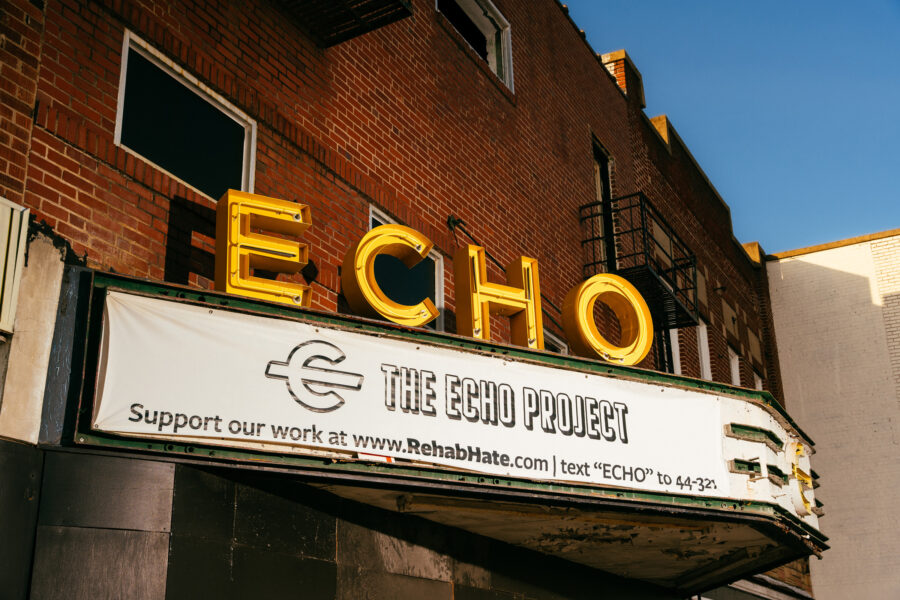
The Echo Theater in Laurens, South Carolina was once a segregated movie theater. Photo by William Crooks
While Charleston has a strong history of museums in the state, including the new International African American Museum, the Echo Project is an opportunity to build on that storytelling. “I don’t think people realize how big this is for the state,” Allen says. “This is part of South Carolina history that people are still learning. It’s a story and a building that is something physical; you can actually visit it and see it and have your emotions wrapped into understanding how hate has gotten transformed into something new.”
Allen continues to have high hopes for the project, which is in the fundraising stage. He says some in the community have mixed feelings about the project overall. “It’s still the South. It’s a small town. I know there are people who are for the project, and there are people against the project. As far as the tension, I know from speaking with Reverend Kennedy, they’re still fighting the good fight to get this project going.”

